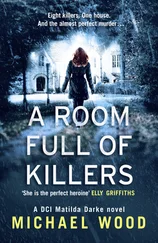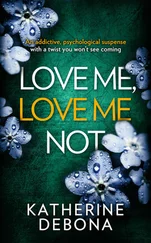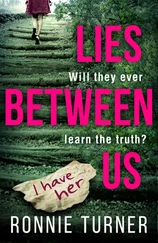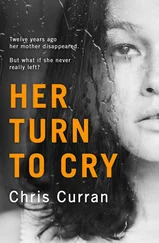The Perfect Neighbors
RACHEL SARGEANT

KillerReads
an imprint of HarperCollins Publishers Ltd
1 London Bridge Street
London SE1 9GF
www.harpercollins.co.uk
First published in Great Britain by HarperCollins Publishers 2017
Copyright © Rachel Sargeant 2017
Cover design by Dominic Forbes © HarperCollins Publishers Ltd 2017
Cover photograph © Shutterstock.com
Rachel Sargeant asserts the moral right to be identified as the author of this work.
A catalogue copy of this book is available from the British Library.
This novel is entirely a work of fiction. The names, characters and incidents portrayed in it are the work of the author’s imagination. Any resemblance to actual persons, living or dead, events or localities is entirely coincidental.
All rights reserved under International and Pan-American Copyright Conventions. By payment of the required fees, you have been granted the non-exclusive, non-transferable right to access and read the text of this e-book on screen. No part of this text may be reproduced, transmitted, down-loaded, decompiled, reverse engineered, or stored in or introduced into any information storage and retrieval system, in any form or by any means, whether electronic or mechanical, now known or hereinafter invented, without the express written permission of HarperCollins.
Ebook Edition © December 2017 ISBN: 9780008285982
Source ISBN: 9780008276744
Version: 2018-11-29
To Fergus, Gillian, Jenny, Peter and Karen
Table of Contents
Cover
Title Page
Copyright
Dedication
Part One
Chapter 1
Chapter 2
Chapter 3
Fiona
Chapter 4
Chapter 5
Chapter 6
Fiona
Chapter 7
Chapter 8
Chapter 9
Chapter 10
Chapter 11
Chapter 12
Fiona
Chapter 13
Chapter 14
Chapter 15
Fiona
Chapter 16
Chapter 17
Chapter 18
Chapter 19
Chapter 20
Chapter 21
Chapter 22
Chapter 23
Chapter 24
Chapter 25
Chapter 26
Chapter 27
Chapter 28
Fiona
Chapter 29
Chapter 30
Chapter 31
Chapter 32
Part Two
Chapter 33
Chapter 34
Chapter 35
Fiona
Chapter 36
Chapter 37
Chapter 38
Chapter 39
Chapter 40
Fiona
Chapter 41
Chapter 42
Chapter 43
Fiona
Chapter 44
Part Three
Chapter 45
Chapter 46
Chapter 47
Chapter 48
Chapter 49
Chapter 50
Chapter 51
Chapter 52
Chapter 53
Chapter 54
Chapter 55
Chapter 56
Chapter 57
Chapter 58
Chapter 59
Chapter 60
Chapter 61
Chapter 62
Chapter 63
Keep Reading...
Acknowledgements
About the Author
About the Publisher
PART ONE
Sunday, 19 December
The spotlight is set into the ceiling so prisoners can’t get at it. Helen’s head hurts from the glare but she doesn’t shield her eyes. The moment she closes them, the images will flood back. Jagged photos in a digital picture frame, moving upwards and sideways, repeating and holding. She doesn’t know which one will torment her first. If she’s lucky, it’s the child’s cello, on its back, neck broken, blood smeared around the sound holes.
But it could be the blood-cherry cheesecake. Or the matted, pink-black belly fur of the dead dog. Or the gaping crew-neck sweater oozing its obscene innards onto the parquet floor. Or Gary .
She sits on the edge of the bed, her arms cradling her knees. If she could focus on the cello, the rest might fade. She must grab the sticky instrument; drag it into view; admire the thickening stains on the polished wood; remember the small, expert hand that once pressed against the fingerboard; and strain to hear the soothing sound of his playing. But it won’t be enough to block out the other images. Seventeen days so far and nothing has dimmed.
She stands up and paces the floor, her joints grating from lack of exercise. They let her walk in the yard at the back of the police station, but the snow piled at the fence reminded her of the cell so she asked to go back in. White room. White loo in the corner, no seat or lid. The only stab of colour is the green button by the door. She presses it.
“Please, sit yourself. Your lawyer will visit you in a little time,” the desk sergeant tells her through the intercom.
No point in arguing; it’s doubtful his English is up to it and, even after eight months in the country, she’s still another expat Brit who can’t be bothered to learn German.
She flops onto the bed. The mattress smells like Marigold gloves. Washing-up, Gary doing the drying. But another view of Gary invades – folded ankles, empty expression, crimson shoulder. She fights the vision and tries to see Gary at their kitchen sink. Tries to make him smile. Make him speak. She curls up, exhausted by the effort.
The door bolts deactivate but she stays foetal. It’s the lawyer, Karola. The ruddy-faced neighbour who keeps spaniels in her back garden and waves at her on Mondays when they put their dustbins out. She’s Frau Barton to her now, the only bilingual German-trained lawyer the school can find at short notice. These days she’s more used to picking up dog poo than counselling women charged with murder.
Helen rolls towards the wall.
“Why didn’t you mention Sascha Jakobsen?” Karola asks.
The name shoots through Helen. She says nothing.
“He’s told the police that you were with him at the outdoor pool in Dortmannhausen.”
Helen sits up. “He said that?”
“The police searched the frozen pool site again. You’d better tell me everything,” Karola says, perching on the bed. Dark trouser suit, darker soul.
Helen draws her legs up, away from her. “There’s nothing to tell.”
“How long have you known Jakobsen?”
Why ask when she knows the answer? The school is a goldfish bowl and they both swim in it. Karola Barton knows every bit of her business. All the neighbours do, all the neighbours that are still alive.
Helen says: “It wasn’t like that.”
Karola stands up. The crease of her trousers is plumb-line vertical. “What was it like , Mrs Taylor?”
Monday, 5 April
Eight Months Earlier
Gary squeezed Helen’s hand. “Excited?”
She said nothing. Was she excited? New start in a new country. As a full-time wife. She managed a smile and nodded.
They drove off the A road – the Landstrasse as Gary called it – into a grey, built-up area. She thought of the coach trip she’d made with a Year 10 class to Bulgaria; communist-built apartment blocks on the outskirts of Sofia.
Gary pulled up at traffic lights and pointed. “And behind there is the Niers International School.”
Through the spike-topped metal fence on the right she made out rows of full bicycle stands. It looked like a provincial railway station.
“But you can’t see it properly from here,” he added.
A pot-bellied man in a dark uniform was standing by a sentry hut, the wooden roof scabby and cracked.
“You have guards?” she asked.
“Don’t mind Klaus. We have two full-time security men to patrol the site. The parents like it. Except our guys spend most of the time playing toy soldiers in their little house.”
Читать дальше













